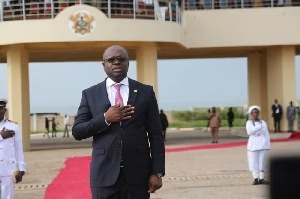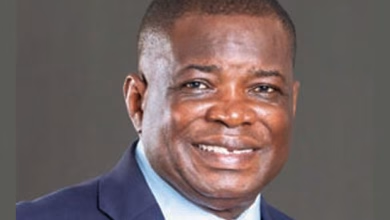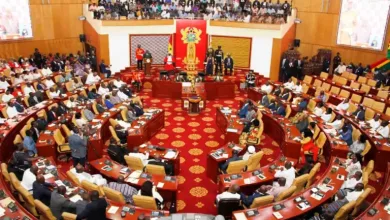“Prof Asare Opposes CJ’s Request for New Justices”

- Chief Justice requests appointment of five new Supreme Court judges.
- Recommended judges include Asante, Baffuor, Homiah, Koranteng, and Botwe.
- Request bypasses constitutional process, raising legal and ethical concerns.
- Action may constitute misconduct, compromising judicial independence.
The Chief Justice recently sent a confidential request to the President to appoint five judges to the Supreme Court. The recommended judges are Edward Amoako Asante, Eric Kyei Baffuor, Angelina Mensah Homiah, Cyra Pamela Koranteng, and Afua Asare Botwe.
According to the Chief Justice, Asante has shown excellent leadership as President of the ECOWAS Court and would be an asset to the Supreme Court. The other four judges are currently serving on the Court of Appeal and have demonstrated outstanding service, courage, and competence.
However, the Chief Justice’s request raises legal and ethical concerns. Article 144(2) of the Constitution states that Supreme Court Justices shall be appointed by the President, acting on the advice of the Judicial Council, in consultation with the Council of State and with the approval of Parliament.
This process ensures that the selection of Supreme Court Justices is collaborative and impartial, involving multiple stakeholders to preserve the independence and integrity of the judiciary. The Chief Justice’s unilateral request to the President undermines this process and compromises the constitutional framework.
The Chief Justice’s involvement in proposing nominees could compromise the separation of powers, leading to a conflict of interest and bias in the recommendations. Additionally, the Chief Justice’s role is to interpret and uphold the law, not to influence the selection process of other justices.
The Constitution and established protocols dictate the process for judicial nominations, and any deviation from these procedures is unlawful. The Chief Justice’s action could erode public confidence in the judicial system and introduce friction in the judiciary.
Judicial ethics require judges to avoid actions that might compromise their independence or the independence of the judiciary. Proposing nominees could be seen as engaging in political activities, which is discouraged for judges.
The Chief Justice’s action may constitute misconduct under the Constitution, which includes actions that are unconstitutional, unlawful, violate ethical standards, abuse power, and compromise the independence of the judiciary.
The Constitution and the Court Act prohibit the Chief Justice from participating in the nomination process. Using the position of Chief Justice to propose names for judicial appointments is an abuse of power and bypasses the established processes for nominations.
The Chief Justice’s request has raised concerns about the integrity and impartiality of the judicial system. The legal and ethical grounds for challenging the request highlight the need for a collaborative and impartial process in appointing Supreme Court Justices.






